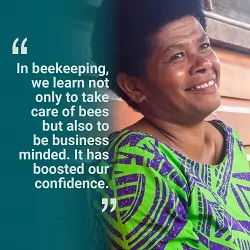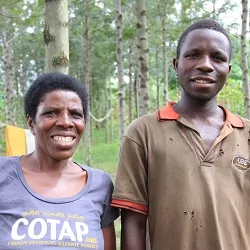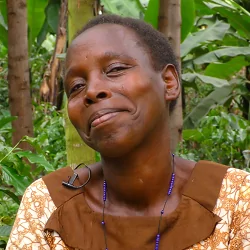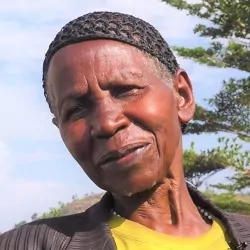Update: The Climate Corporation, now known as Climate FieldView, sold out to Monsanto (the guys who patent food) in 2013. Monsanto was then bought by Bayer in 2018.
One startup that recently caught oureye is The Climate Corporation, which offers weather-related crop insurance, targeted to U.S. farmers. Crop insurance, and insurance in general, are good things and neither is anything new.
But one thing even the untrained eye will immediately notice is the company’s URL, www.climate.com. Over here at COTAP.org, we’ve had countless bottom-feeding cyber-squatters out there trying to sell us “COTAP.info” and the like. Climate.com was likely quite valuable, was probably registered by such a squatter patiently waiting for a payout, and sure enough somebody came along with a lot of money and paid them for it. That’s the first tip-off that someone sophisticated and with some long-term plans might be involved with TCC.
Then it dawns on you that the pretty and approachable homepage is just proper marketing engineered to fit TCC’s target, the American farmer, and that innocent little startup is the one thing this is not. Formerly known as “Weatherbill,” The Climate Corporation is headquartered in the heart of San Francisco’s South of Market district (SOMA), which is pretty much the heart of Silicon Valley. Per LinkedIn, they’re rounding the corner on 100 employees, many of them ex-Googlers. And there’s the de rigueur addition of former public official Senator Dorgan to its board, to keep up with the likes of C3 Energy’s Condoleezza Rice, lest all other things appear equal as the tech giants shop for their next acquisition.
TCC’s mission is to “help the world’s people and businesses adapt to climate change.” While making lots of money off of weather insurance. Per their CrunchBase profile, they’ve gotten $58.9 million in funding back in February 2011, most notably from Khosla Ventures and Google Ventures. VC’s expect big returns and over fairly short time spans. That means they expect this company to generate lots of cash. Lots of cash from an insurance entity means lots of premiums, so in other words that means lots and lots of farmers rushing to TCC in search of weather-related crop insurance.
It’s one thing to hear James Hansen or Al Gore talk about what’s in store. It’s quite another to watch the most sophisticated VC’s in the world place a $60 million bet on it. TCC and their investors understandably view climate change adaptation as a very, very large business opportunity and they’re simply going after it. And TCC is just one example of many such bets.
TCC’s backers are doing their best to spin themselves as some sort of innovative play in “Big Data.” That’s not untrue, but make no mistake, what’s also happening here is a new category of startup that should be referred to as “Adaptation Tech,” a mutation of “Clean Tech” but where climate change and its consequences are a forgone conclusion and the next big opportunity, to some, is solutions which treat the symptoms but not the root cause. There’s money to be made off of climate change in this way, in the same way there’s money to be made off of borrowers in payday lending schemes. They might as well be a construction company specializing in sea walls. It’s definitely not illegal, but it’s not right, either. If TCC and their backers aren’t doing it, others eventually will.
Carbon abatement startups like C3 Energy, Silver Spring Networks, and of course COTAP, are much more our style. We’d much prefer that instead of untold millions being pumped into “Adaptation Tech,” that our society point that money towards abatement in general and, wherever possible, into the pockets of the poorest people in the world. They’re already proving themselves by doing a great job of getting rid of the surplus CO2 that’s the root cause of this problem, as opposed to some of the already-rich whose mission is to “help the world” adapt to the problem’s symptoms. Through COTAP, you can be their VC.





















